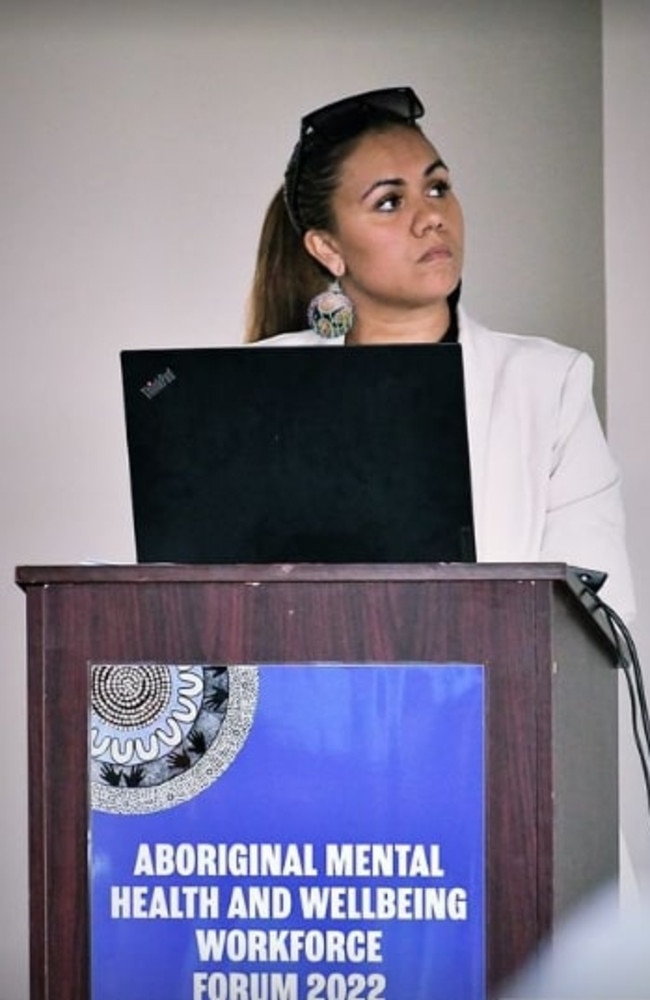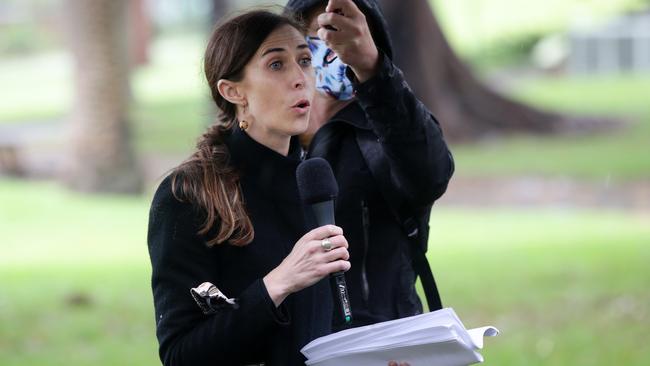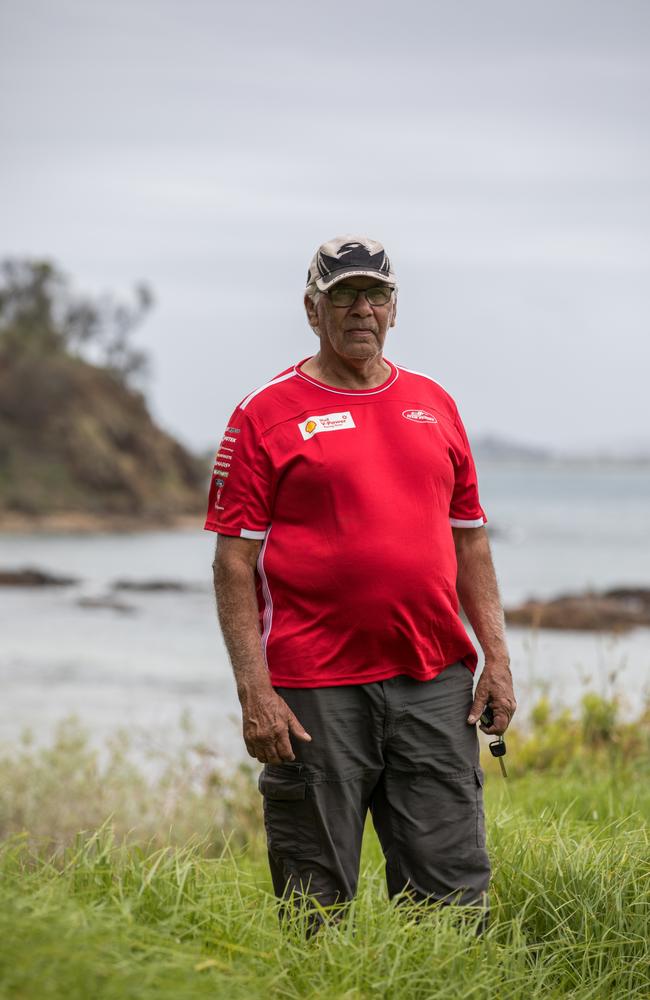NSW Upper House commission hears from Aboriginal health providers during Narooma hearing
Legislation to protect cultural fishing has stalled for more than a decade, and it’s affecting the mental and physical well-being of the South Coast’s First Nation people, a commission has heard.
The South Coast News
Don't miss out on the headlines from The South Coast News. Followed categories will be added to My News.
A NSW Government commission into long-stalled Aboriginal cultural fishing reforms has heard that restrictions on the millennia-old practise are putting at risk the mental and physical health of the South Coast’s First Nation communities.
Established in November 2021, the NSW Upper House commission seeks to establish why legislative provisions passed in 2009 - that would allow Aboriginal fisherman to take more than the legal limit of certain fish if for cultural purposes - had not yet been implemented.
Aboriginal health service Katungal was one of more than 40 individuals and organisations to make a submission to the commission when it visited Narooma on July 28, with deputations being made as to the legal, financial, and health effects of current restrictions.
Katungal CEO Kayeleen Brown told The South Coast News the inability of the region’s First Nation people to freely practise cultural fishing impacted a range of important health outcomes.
“The inability for people to practise their cultural rights has a significant impact on their health and well-being,” Ms Brown said.
“It stems from being able to practise our rituals and our protocols that we’ve used since forever.”

Ms Brown said the effect restrictions had on the mental health of community members was “huge”.
“We have a lot of the issues that we see coming through our medical services that really stem from the lack of Aboriginal people being able to be Aboriginal people,” she said
“We’re in a world where we’re told that we are acknowledged as traditional owners, with our continuation and connection to land, sea and skies.
“However, when it comes into practice, that’s not the reality what we see, because our community is still getting prosecuted.
“That tradition and practice and culture isn’t being handed down to the next generation.”
Fines accrued by fishermen charged for exceeding legal limits put a financial and emotional strain on families, Ms Brown said.
In its submission, Aboriginal Legal Service NSW/ACT CEO Karly Warner called on the state government to implement the 2009 Bill immediately, stating that the prosecution of Aboriginal fishers engaging in fishing practices had led to a significant over-representation.
“Aboriginal people make up four per cent of people living on the NSW South Coast, but have accounted for 80 per cent of jail terms for fisheries offences since 2009,” Ms Warner said.
“Aboriginal people are significantly overrepresented among those jailed or convicted in NSW for offences related to abalone fishing.”

Ms Warner said the legal service believed the penalisation of Aboriginal fishermen exercising their native title rights coincided with the decision to increase the take of commercial operators.
“Whilst the Department of Primary Industries claims that enforcement actions are essential to safeguard the sustainability of the species, it issued an order permitting the industry to harvest the remaining portions of its 2020-2021 quota,” she said.
“Aboriginal people are the original custodians of the land and have managed natural systems sustainably for tens of thousands of years.’
“The ALS calls out the double standards and unfairness of NSW DPI and note that this is yet another example of systemic racism depriving Aboriginal people of culture and tradition.”
As a staple of the Yuin and other South Coast First Nation people’s diets, fish caught off the coast are an important resource for communities.
So, too, is the community and exercise regular fishing engenders, Ms Brown said.
“Aboriginal people are getting out there and fish as a family,” she said.
“It creates wellbeing and it creates positive role modelling.

“It allows people to practise language and to pass on to their family traditional practises. Information about country that is important to these areas and also the science around that. We talk about the seasons and our traditional stories that tell us when to fish and when to gather.”
In January, Mogo Aboriginal fishermen Andrew Nye told The South Coast News he was one of the region’s last.
“But, we can’t give up,” Mr Nye, 71, said.
“This land still belongs to us.
“I want to live long to see us get our rights back. Then I will die happy.”
The commission will host another hearing on August 19 in Parliament House in Sydney before it delivers its results.
The committee is being chaired by NSW Upper House Member and NSW Shooters, Fishers and Farmers MLC, Mark Banasiak.
In a statement, the NSW Department of Primary Industry, which overseas fishing, said it was their “priority” to preserve and ensure the health of the community-owned fisheries resources of NSW, maintain fair and equitable access to all user groups, and continue to incorporate scientific and Aboriginal traditional knowledge and community involvement in fisheries management decision-making.
“There is a misconception that Aboriginal people are being targeted for fisheries offences in NSW. DPI has comprehensive processes and programs in place to foster and support cultural fishing in NSW,” a spokesperson said.
“Our data indicates Aboriginal people represent a low percentage of fisheries compliance related prosecutions. The proportion of finalised court charges under the Fisheries Management Act brought against Aboriginal people between 2016 to date is around 7.5 per cent compared to 92.5 per cent brought against non-Aboriginal people and companies.
“In that same period, the proportion of penalty notices issued to Aboriginal people is 1.5 per cent compared to 98.5 per cent brought against non-Aboriginal people and companies.”
The spokesperson said the State Government was working actively to support Aboriginal health, with cultural fishing catch limits being provided above the regular restrictions, and that the implementation of parts of the 2009 Act had not commenced as it required the establishment of the Aboriginal Fishing Advisory Council, and for that council to be consulted on the development of the regulation.
“After key stakeholders (including NSW Aboriginal Land Council and NTSCORP who are part of AFAC, and other members of AFAC) advised the NSW Government they no longer supported the state-wide regulation, DPI Fisheries has been engaging with local communities and other stakeholders to develop alternative arrangements to facilitate cultural fishing, namely Local Management Plans,” the spokesperson said.
“LMPs provide access to fisheries resources for local Aboriginal communities in line with their cultural practices. This approach recognises the need and desire for Aboriginal communities to have greater involvement in fisheries management at a local level, including aspects of self-regulation.
“A two-year LMP trial in the Hastings Port Macquarie area with the Birpai and Bunyah Aboriginal communities started in June 2022 – the first of its kind in NSW – and a similar trial in the Tweed region is expected to start later this year.
“These LMP trials will inform the best approach to commencement of section 21AA – the unimplemented section of the Act.”




